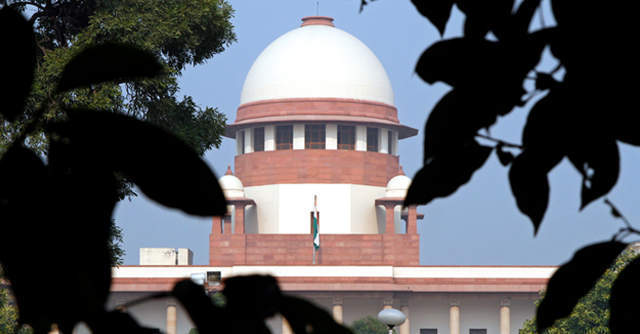
Nasscom, lawyers on SC ruling on two-decade old software royalty case


The Supreme Court on Tuesday ruled against India’s exchequer to protect interests of non-resident software importing companies in the country, bringing to end a two-decade long tussle across courts.
The case was related to tax issues around cross-border software payments.
According to the three-judge bench ruling, payments made by Indian residents for purchase of software by subscribing to end user license agreements, payments made by Indian distributors for purchase of software to resell, or payments made by an Indian resident for purchase of equipment with embedded software is not subject to taxation in the country.

Ergo, Indian users or distributors of software now hold no liability to withhold tax for the usage, while they pay non-resident suppliers of software. The suppliers include entities ranging from SAP, Google, Microsoft, to Mphasis, Samsung Electronics, and IBM.
“This ruling will especially be beneficial for Big Tech firms/software companies as it would mean that no tax would be required to be deducted on payments for software related transactions (where they fulfill the criteria as per this ruling), multinational companies can operate reseller models in India and also companies who have already paid tax on this account, can claim huge refunds,” Smita Goel, partner at Algo Legal told TechCircle.
On whether software companies are looking to file tax refunds, Indian IT services lobby group Nasscom’s head of public policy Ashish Agarwal told TechCircle, “I think that will be one of the key things that taxpayers may focus on. The timeline to revise the return/file belated return (and claim refund) for the last financial year is open till March 31, 2021, but for the years before that, the statutory timelines to file returns have expired and it will need to be examined if there is another way in which refunds can be claimed.”

Additionally, the latest ruling may not necessarily ease the burden on the taxpayer, Ritesh Kumar, an executive director and partner of tax practice at IndusLaw told TechCircle. In reference to the proposed amendment to certain equalisation levy provisions in the Finance Bill, 2021 that makes divestiture to cover within its ambit such transactions which are not in the nature of “royalty.”
Read: Will equalisation levy create a level playing field?
“Therefore, starting 01 April 2020 (interestingly, from a retrospective date), assuming Finance Bill is passed in the current form, the non-resident recipient of such software payments may have to remit 2% of the gross transaction value as Equalisation Levy as opposed to the Indian payer having deducted tax at source at 10% (which was otherwise creditable),” Kumar added.

The apex court also examined the provisions of the Indian Copyright Act, 1957, in relation to softwares products.
A distinction between sale of "copyrighted article" and "copyrighted right" and how it’s only the payment for use of the latter which is subject to tax in India as royalty, Sumit Mangal, a partner at L&L Partners told TechCircle.
